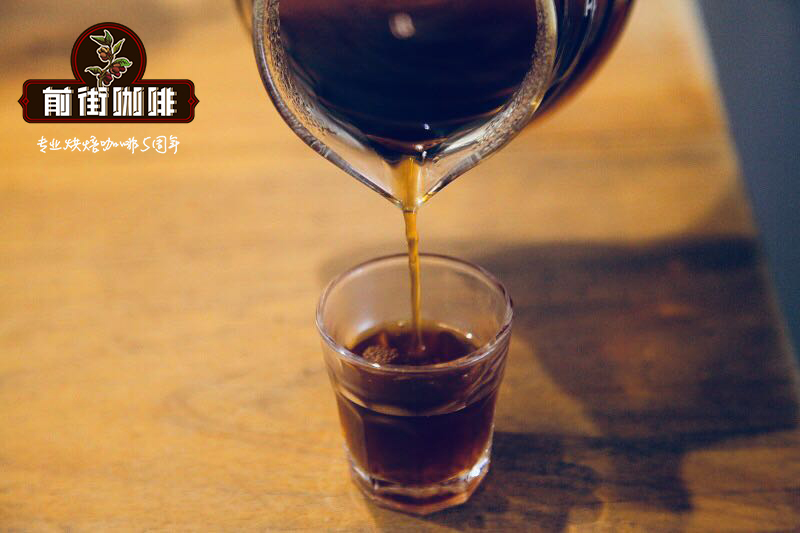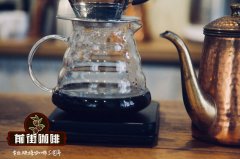Introduction to double washing of Richter's Manor and treatment method in Costa Rica

Professional coffee knowledge exchange more coffee bean information please follow the coffee workshop (Wechat official account cafe_style)
Costa Rican coffee plantations with fertile volcanic ash, mild and suitable temperatures, and stable and abundant rainfall are one of the reasons why coffee has become one of the main agricultural products in Costa Rica. Its coffee beans are all Arabica species. The flavor is pure, the aroma is pleasant, and it has an impeccable balance in acidity and taste.
The coffee beans produced at the high latitudes of Costa Rica are famous in the world, full-bodied, mild in taste, but extremely sour. The coffee beans here have been carefully processed, which is why they have high quality coffee. Located in the south of SanJos é, the capital of Tarasu, Costa Rica is one of the most valued coffee growers in the country. Tarasu (Tarrazu) is one of the major coffee producers in the world. Coffee was introduced into Costa Rica from Cuba in 1729. Today, its coffee industry is one of the well-organized industries in the world, with a yield of 1700 kg per hectare. Costa Rica has only 3.5 million people but 400m coffee trees, and coffee exports account for 25 per cent of the country's total exports. Costa Rica's volcanic soil is very fertile and well drained, especially in the central plateau CentralPlateau, where the soil consists of successive layers of ash and dust. Costa Rican coffee has full particles, ideal acidity and unique strong flavor.
El Balar is a 5-hectare farm where Kaddura is grown. It is owned by the father of three siblings: Leo,Melvin and Elian Robles, who worked on the farm with their father for many years. El Balar is located about 1500 meters above sea level in San Marco de Tarazu. The farm has rich sandy soil and can grow high-quality coffee. They have been processing their own coffee for more than 10 years and were one of the pioneers of Tarazhu's creation of a washing plant.
The double washing process is completed after harvesting ripe cherries. They take the cherries to the processing plant, mechanically remove the pulp and coffee, and remove as much mucus as possible. Then, soak and ferment it in clean water for 12 hours. After 12 hours, they add more clean water and soak the coffee again. After that, the coffee is put on an elevated bed to bask in the sun for about 8 to 10 days. Then they measure the humidity, and the target is 10.5%. Then store the coffee in a plastic bag.
Important Notice :
前街咖啡 FrontStreet Coffee has moved to new addredd:
FrontStreet Coffee Address: 315,Donghua East Road,GuangZhou
Tel:020 38364473
- Prev

Protect Panama, which develops coffee industry under the original ecological environment, and grow champion beans and coffee fragrance.
Professional coffee knowledge exchange more coffee bean information please follow the coffee workshop (Wechat official account cafe_style) country: Panama: Walken altitude: 1250-1800 m treatment: wine sun grade: SHB bean seed: Kaddura flavor description: wine, fruit juice, grape, longan as soon as it is ground, it gives off a very strong fruit wine aroma with fresh fumigated wood flavor
- Next

Introduction of honey treatment in Costa Rica Ponte processing plant. Costa Rican coffee honey treatment.
Professional coffee knowledge exchange more coffee bean information Please follow the coffee workshop (Wechat official account cafe_style) Costa Rica has a coffee history of more than 200 years. It is not only an important basis for the country's economy and people's livelihood, but also an indispensable role in the global coffee history. In the past decade, it has become popular all over the world as a micro-processing farm, in this small Central American country.
Related
- Does Rose Summer choose Blue, Green or Red? Detailed explanation of Rose Summer Coffee plots and Classification in Panamanian Jade Manor
- What is the difference between the origin, producing area, processing plant, cooperative and manor of coffee beans?
- How fine does the espresso powder fit? how to grind the espresso?
- Sca coffee roasting degree color card coffee roasting degree 8 roasting color values what do you mean?
- The practice of lattes: how to make lattes at home
- Introduction to Indonesian Fine Coffee beans-- Java Coffee producing area of Indonesian Arabica Coffee
- How much will the flavor of light and medium roasted rose summer be expressed? What baking level is rose summer suitable for?
- Introduction to the characteristics of washing, sun-drying or wet-planing coffee commonly used in Mantenin, Indonesia
- Price characteristics of Arabica Coffee Bean Starbucks introduction to Manning Coffee Bean Taste producing area Variety Manor
- What is the authentic Yega flavor? What are the flavor characteristics of the really excellent Yejasuffi coffee beans?

